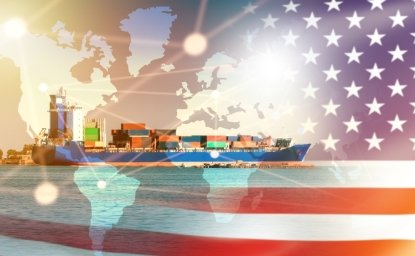The desire by many Québécois to separate from Canada is a movement as old as Canada itself. The issue reached a high point in 1995, when a Québec referendum was defeated by a nail-biting margin of one percent. For nearly a decade, the separatist Parti Québécois has been in power in Québec, but on April 14th, 2003, the federalist Québec Liberal Party won a majority government in the province's election. What this recent election means to the future of the sovereignty movement, and to the political party which represents it, was the topic of Daniel Turp's remarks.
Turp made the case that the recent election results by no means "shut out" the separatist movement in Québec, although he conceded that at least four years of constitutional peace are likely to follow the Québec Liberal Party's decisive victory. While now in opposition, the Parti Québécois (PQ) remains strong in both numbers and experience (44 opposition members including 25 former cabinet ministers). He also highlighted that recent polls show support for separatism oscillating between 40 and 44 per cent, stronger than the election results might indicate.
Turp went on to discuss the future of the PQ as distinct from that of the separatist movement. He listed two main issues areas: 1) future leadership, and 2) what he called "the blueprint for sovereignty and society." The latter can be interpreted as determining how to move beyond the lone raison d'être of separatism into a comprehensive political alternative, by outlining how the PQ wants to define itself in terms of the type of government it would become, and in terms of how the party would define itself vis-à-vis Canada and the world. With respect to leadership, an informal campaign is already underway, because the present leader of the PQ, Bernard Landry, has promised to step down so a new leader can take over. When the leadership race will occur is open to speculation, although Turp predicts September 2004. He did say that no major discussion on separatism would begin until a new leader emerges.
With respect to the blueprint for society and sovereignty, Turp stated that the concept of sovereignty must be rethought: should Québec's separatist agenda be linked to its relationship with Canada? or, should it focus on Québec exclusively, without reference to Canada? He explained that historically, questions of separatism have focused on what type of relationship with Canada would result, a link that he sees as damaging to the cause. The alternative would be to de-link the two completely, so that Québec and Canada have no special relationship, but are just two nations like any other. Turp would like to see an activist state in Québec and believes Québécois are more liberal than the rest of Canada, although he concedes that the recent election seems to indicate support for a less interventionist government.
Turp then addressed the future of the sovereignty movement as distinct from that of the party. He emphasized that the movement is not only represented by the PQ, but also consists of civil society groups, labor unions, student unions, and other institutions. Also to be considered are the federal separatist party, the Bloc Québécois, the new leftist party Union des Forces Progressistes, and the group Intellectuels pour la Souveraineté. He accused the PQ of immodestly failing to listen to the other voices on separatism, and proposed that the PQ become a union of political families, similar to what Jacques Chirac did in France with the Union pour un Mouvement Populaire.
He spoke about nation building in the opposition, and noted that popular support for separatism has tended to grow when the PQ is in opposition. This was the case between 1960 and 1976 as well as during the 1985-94 period when the Meech Lake and Charlottetown constitutional accords were negotiated. Turp predicted that support for separatism would grow if there were another round of constitutional talks, and it would also rise if the Supreme Court rules against Québec's language laws. But the real key to nation building in the opposition is a new leader for the PQ, as a new generation takes over the party.
He concluded that the issue of Québec separatism is one of the self-determination of peoples, citing Woodrow Wilson and his 14 points as the classic champion of this ideal. He emphasized that the freedom desired by many Québécois cannot be realized within the confines of the Canadian state. He expressed a desire to maintain dialogue with the United States and institutions such as the Wilson Center.
The challenging question and answer period entailed questions on the minority vote within Québec, English language rights, globalization, post 9-11 security, levels of autonomy possible within the Canadian federation, and where Québec fits in North America.
Daniel Turp is a Professor at the Faculty of Law of the Université de Montréal (on leave). His academic teachings include advanced constitutional law, international human rights law, international economic relations law, and North American free trade. A founding member of the organization Intellectuals for Sovereignty (IPSO), he also has had a long career in separatist politics and has served many functions within the Bloc Québécois, such as the critic for Intergovernmental Affairs, critic on Foreign Affairs, President of the Policy Committee, and Member of the Board of Directors. He has served at the Federal level as a Member of Parliament for Beauharnois-Salaberry (Bloc Québécois), and was recently elected to Québec's National Assembly (Parti Québécois).
David Biette, Director, Canada Institute, 202-691-4133
Drafted by Stefanie Bowles, Research Assistant




